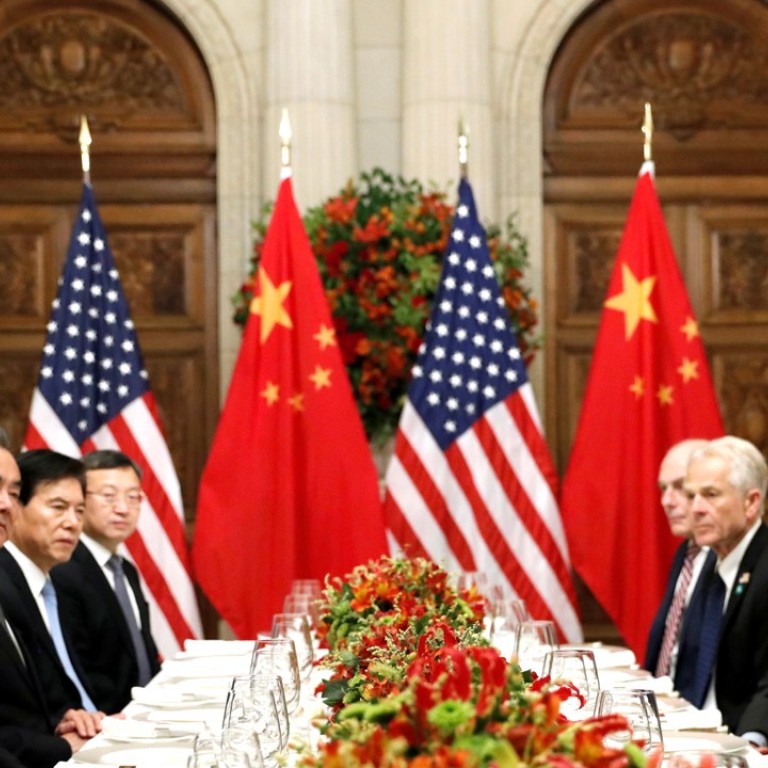
The arrest of Huawei CFO Sabrina Meng Wanzhou matters, or not; agreements have been made, or not: welcome to the US-China trade mess
- Robert Boxwell says Beijing and Washington can’t even agree on who started the trade war. Nor it is clear how the US will verify China’s compliance on the issue of intellectual property theft, which the Washington sees as a security threat
Who knew trade could be so exciting? Aside from trying to outrun Somali pirates in speedboats chasing your freighter with AK-47s in hand or wondering whether your produce truck is going to make it across the Mexico-US border with your cocaine shipment intact, trade is generally humdrum stuff. Offices, emails, orders, containers, ships, jets, trucks, payments. And millions of people who generally get along.
You can buy a pint of Ben & Jerry’s at your local Kuala Lumpur hypermarket (if you don’t mind paying double the US price) and your friends in the US can buy plenty of this and that made in Mexico, China or wherever at their local hypermarket. You can even have your Chinese-made fentanyl conveniently delivered to your doorstep by the US Postal Service. Who would have known?
Elites and intellectuals disagreeing fiercely on the best course for their country, all while pelting their presidents with vitriol or carefully chosen criticism – for not being tough enough, or too tough, with the other guy. US President Donald Trump is used to this. Chinese President Xi Jinping isn’t.
There’s even disagreement about who started it, which is not surprising for a “war”. Trump did, according to Beijing and the Trump-hating majority of the world press. Beijing did decades ago, according to Washington and the rest of the world press.
Before news of her detention surfaced, China and the US had agreed to a 90-day truce in order to try to strike a conclusive trade deal and had already made progress towards that end. Unless they hadn’t, again depending on who you ask.
Beijing was quiet for the first few days following the dinner, while Trump took to Twitter almost immediately to proclaim some magic concessions he had already wrung from the brief meeting.
Beijing says trade was going smoothly enough before the war began, with just normal frictions along the way, and that Trump started the trade war because the US wants to contain China’s rightful rise as a world power.
Washington says China’s markets never opened as promised and that American companies that go to China – and even some that don’t – are losing their intellectual property one way or another to China Inc.
Beijing disputes both of these allegations, but promises to make changes that address them anyway.
To which Washington says it has been on the receiving end of too many broken promises to believe another. White House economic adviser Larry Kudlow invoked a Reaganesque phrase over the weekend, “trust but verify”, to describe the talks with Beijing. It’s an oxymoron, so it blends well with the mess.
In fact, it’s hard to see the two sides resolving the intellectual property theft issue at all because the US now characterises it as a national security threat. That raises the bar for anyone in Washington who’s responsible for signing on the dotted line of an agreement that includes Beijing’s promises to cooperate on the matter.
So, while the two sides may craft something they call an “agreement”, it will be more for show than anything else. Washington is clearly moving to rein in a perceived national security threat.
After some four decades of appearing to work towards mutual prosperity, the relationship between China and the US is changing in a dramatic way. One hopes that the leaders of the two countries can resolve their many differences in a way that puts the relationship back on track, even in an arbitrary 90-day effort.
Yet one doubts that they can. Looking at all the points of disagreement and at the many unpredictable ups and downs of the negotiations, only one thing is certain today: there’s practically no chance that trade between the two countries is going back to business as usual.
Yet, however the relationship lands in the months and years after the 90 days fly by, it’s imperative that the leaders never stop trying to improve it for the benefit of all their citizens.
Robert Boxwell is director of the consultancy Opera Advisors

